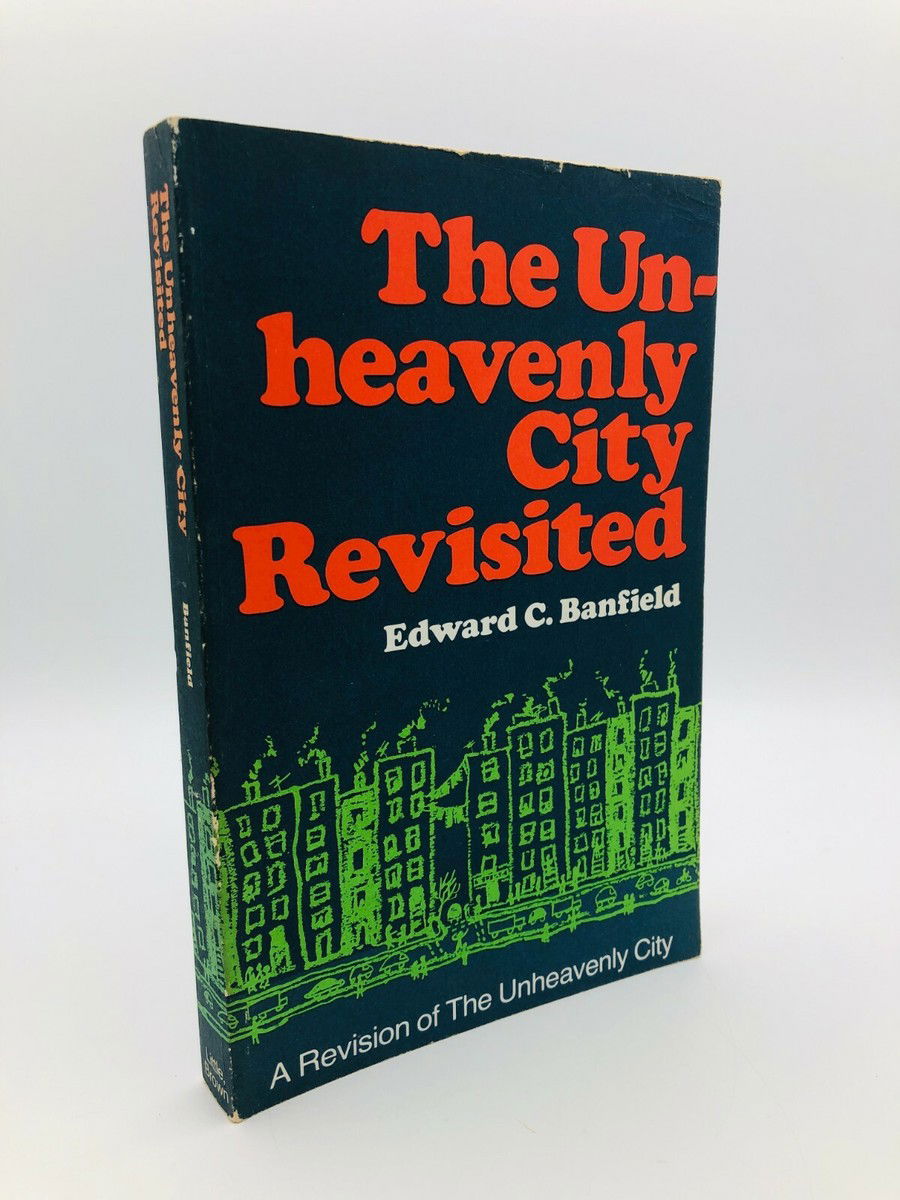
EDWARD C. Banfield (1916-1999), who earned his Ph.D. in political science at the University of Chicago, was considered “one of the leading scholars of his generation.” He taught at Harvard and the University of Pennsylvania and was an adviser to Presidents Nixon, Ford and Reagan. Radical students were, more often than not, offended by Banfield’s research findings so they protested and disrupted his classes and speeches. They tried to “cancel” him even before “cancellation” was in vogue.
One of his books that the Left found infuriating was “The Unheavenly City,” which was published in 1970. Four years later, it was revised, expanded and reissued as “The Unheavenly City Revisited.” In his preface, Professor Banfield noted that the “principal and I am afraid ineradicable source of controversy…is that my main points are deeply subversive of opinions and beliefs to which many highly intelligent and well-informed people are wedded, and without which the world would perhaps be unendurable for them. What most distresses my critics is not that I have (as they suppose) made conjectures that are not in accord with the facts. Rather it is, first, that I have asserted (and anyone who reflects knows it to be true) that conjectures unsupported, or slightly supported, by facts are the stuff of which social policies must always mainly be made. And, second, my conjecture is that owing to the nature of man and society (more particularly, American culture and institutions) we cannot ‘solve’ our serious problems by rational management. Indeed, by trying we are almost certain to make matters worse. My ‘revisit’ has therefore not changed the book in any essentials and I am afraid that, although it should be less irritating, those who did not like it before will not like it now.”
He wrote clearly and even bluntly. He was a fine and profound writer.
“Why,” he asked, “is there so much talk of an urban crisis? The answer is that the improvements…, great as they have been, have not kept pace with rising expectations. In other words, although things have been getting better absolutely, they have been getting worse relative to what we think they should be.
“Consider the poverty problem, for example. Irving Kristol has pointed out that for nearly a century all studies, in all countries, have concluded that a third, a fourth, or a fifth of the nation in question is below the poverty. ‘Obviously,’ he remarks, ‘if one defines the poverty line as that which places one-fifth of the nation below it, then one-fifth of the nation will always be below the poverty line.’ The point is that even if everyone is better off there will be as much poverty as ever, provided that the line is redefined upward. Kristol notes that whereas in the depths of the Depression, F.D.R. found only one-third of the nation ‘ill-housed, ill-clad, ill-nourished,’ Leon Keyserling, a former head of the Council of Economic Advisers, in 1962 published a book called
‘Poverty and Deprivation in the U.S. — the Plight of Two-Fifths of a Nation.’ ”
Take note that today as you read this, poverty continues to be a “grave problem,” especially for the Left, in America, which has the world’s largest nominal GDP, a highly diversified and innovative economy, and leads in sectors like technology and finance. And yet as former Sen. Phil Gramm, Robert Ekelund, and John Early argued in their excellent 2022 book, “The Myth of American Inequality: How Government Biases Policy Debate,” income inequality and poverty in the U.S. are not as severe as government statistics often suggest.
In any case, Banfield said America’s “urban problems are like the mechanical rabbit at the racetracks, which is set to keep just ahead of the dogs no matter how fast they may run. Our performance is better and better, but because we set our standards and expectations to keep ahead of performance, the problems are never any nearer to solutions.”
There is a danger, he added, “that we may mistake failure to progress as fast as we would like for failure to progress at all and, in panic, rush into ill-considered measures that will only make matter worse…and to conclude from the inevitable failure of these measures that there is something fundamentally wrong with our society.”
He quoted the then-secretary of Health, Education and Welfare as saying that providing its services to all who needed them would require an additional cost roughly equivalent to the entire federal budget. “His point was that expectations, indeed claims authorized by Congress, far exceed the capacity of the government to provide.”
Hence, the voting public’s perennial dissatisfaction with whoever are their elected officials.
The good professor wrote this in the early 1970s.
As the (very great) American economist Thomas Sowell would put it, “Many, if not most, of the people discussing urban problems today have not yet caught up to what Banfield said half a century ago.”
To be continued
Send feedback to editor@mvariety.com










